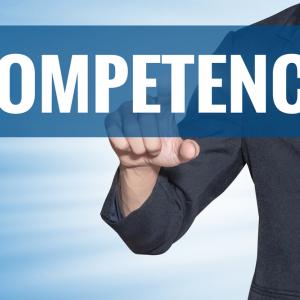If you want to be viewed as charismatic, you need to be quick on your feet according to a new psychological study just published.
The study sought to understand why some people exude more charisma than others. In the hypothesis, researches initially thought they’d find base IQ as one of the most vital components tied to high charisma. But when they measured this trait, IQ was not the key to be viewed as highly charismatic. Instead, the key determiner was speed of thought and response.
The study shows that people who were able to respond more quickly to general knowledge questions and visual tasks were perceived as more charismatic by their friends, independent of IQ and other personality traits.
Professor William von Hippel, leader of the research project, states:
“Our findings show that social intelligence is more than just knowing the right thing to do.”
The study found that the speed at which someone could provide a solution is the primary driver of being perceived as charismatic and an expression of social intelligence.
Von Hippel continues:
“We decided to take a slightly different approach to the problem by trying to get a handle on what enables charisma. When we looked at charismatic leaders, musicians, and other public figures, one thing that stood out is that they are quick on their feet.”
The study included 417 people who were rated on their charisma by friends, while also being tested for personality and IQ. To gauge charisma, the researchers asked the participants’ friends to rate how “charismatic,” “funny,” and “quick-witted” they were.
Each participant was then asked 30 questions regarding common knowledge, such as “Name a precious gem.”
People who were quicker to come up with easy answers to these questions were perceived as more charismatic by their friends, even more so than those who came up with more complex answers.
This was even true when people’s personality and intelligence were taken into account.
Professor Hippel said:
Although we expected mental speed to predict charisma, we thought that it would be less important than IQ. Instead, we found that how smart people were was less important than how quick they were. So knowing the right answer to a tough question appears to be less important than being able to consider a large number of social responses in a brief window of time.
Being mentally agile also allows people to consider different social responses on the spot. Contrary to the researcher’s predictions, mental speed did not predict other social skills, such as being adept at handling conflict or interpreting the feelings of others.
These studies suggest that social intelligence depends on more than knowing specific social rules or having certain social abilities, like the ability to read people’s facial expressions. While social knowledge and reading expressions are undoubtedly critical components of social intelligence, this research shows that general mental properties, like mental speed, also play an important role.
This enables charismatic people to rule out inappropriate actions, as well as pick out potentially witty responses.
How DO You Think More Quickly On Your Feet?
1. Prepare
Identify a dozen topics that tend to arise in casual business conversation. Then think of interesting responses or stories you can tell that illustrate whatever point you're trying to make. Having an arsenal of stories and illustrations is a fantastic way to increase the speed of your compelling responses. Learn to tell a story with visual appeal, which is going to capture people's attention. You have access to good storytelling material. Shareable stories happen to us daily; we just need to harvest them.
2. Quickly Advance the Conversation with the Yes/And Technique
A quick-witted response can be developed by using the Yes/And technique, long famous among improvisers. When someone makes a statement, don’t merely respond, but add an “and” to it. For example, it’s Monday morning. As you enter the office, a co-worker says, "It was a beautiful weekend." If you respond, "Yes, it was great," that ends the conversation. But if you say, "Yes, it was great, AND I really made the most of it. I went to a concert in the park and brought my yellow Lab. He almost ate the people’s picnic on the blanket next to ours."
The AND gives you a way to advance the dialogue while responding quickly. You can follow up with "Do you like dogs?" or "Have you ever been to a concert in the park?" With this powerful technique, you are developing a great conversation, while you are perceived as highly charismatic and engaging.
This "Yes/And" technique allows you to respond quickly, to provide the opportunity to acknowledge what's been said, and to move the conversation to a new place.
3. Make Others Look Great
Everyone likes to be recognized and shine. A great initial reply when you are asked a question is to quickly state, “That’s a great question.” This allows you to acknowledge his/her wisdom in asking the question and eliminates awkwardness of a long pause while you think of an answer.
When asked, “What do you think about this idea/solution?” instead of only listing your litany of likes and dislikes, include the responses of others. Try this: “Yes, I think that idea has strength. I do like how it closes that loop, but I am concerned about the expenses tied to implementing it. I was really impressed when Linda told me how she thought we could reduce costs. I'd love to hear her talk more about that." You’ve just responded quickly on your feet, and people will view you as more likeable and charismatic when you don't have to prove yourself to be the smartest person in the room.
4. Speak From Your Heart/Respond From Your Gut
People who overthink their answers are often not compelling and are at times not trusted. President Obama has been critiqued by communication experts as too “thought out” in his responses. This is evidenced by frequent “ums” and a very slow delivery as he thinks through every aspect of his answer. Yet when you hear him in casual conversation, he is much more engaging. There are times you need to answer from your gut to be most engaging. Compare President Obama to Bill Clinton and Ronald Reagan who spoke much from their heart. The American people identified these two Presidents as highly likeable and charismatic.
5. Take an Improv Class
While I realize this strikes fear into many of you, there is no better way to force yourself to adaptation and quick response than in the improv environment. Sign up, let go, and have fun!
Get To Work On Being Quick
With practice you CAN learn to think and to respond more quickly. Doing so will raise the perception that you are much more charismatic in others’ eyes. And as we have discussed, charisma is necessary for leadership and influencing others.
[Source: The research study was published in the journal Psychological Science (von Hippel et al., 2015).]





